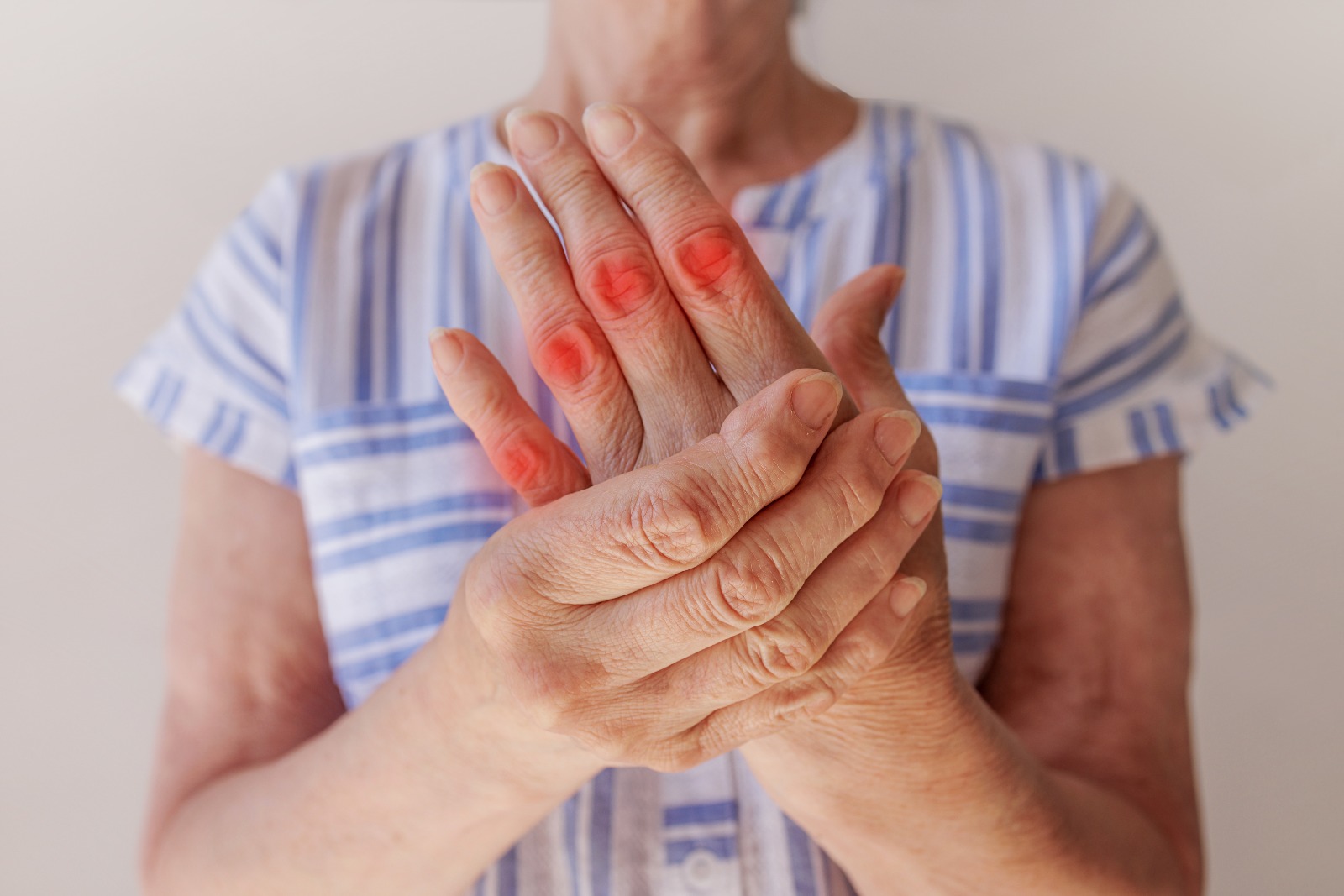

A chronic illness that affects joints and causes pain and stiffness, arthritis affects millions of people worldwide. The ancient wisdom of Ayurveda gives holistic insights into understanding and controlling arthritis, while modern medicine offers a variety of treatments. Together, we will examine the historical background of arthritis, unearth its essence in Ayurveda, and identify medicinal herbs that provide hope. Join us as we travel through time and culture.
-
What is Arthritis in Ayurveda?
In Ayurveda, arthritis is termed “Sandhivata,” indicating a condition affecting the joints and characterized by pain, swelling, and reduced mobility. Ayurvedic philosophy attributes arthritis to imbalances in the body’s doshas—particularly aggravated Vata dosha—resulting from poor digestion, accumulation of toxins, and weakened immune function. Ayurveda emphasizes restoring balance and harmony to the body’s energies to alleviate arthritis symptoms and promote joint health.
-
History of Arthritis:
Arthritis has a long history, with references to joint pain and stiffness found in ancient medical texts from civilizations across the globe. In ancient India, texts like Charaka Samhita and Sushruta Samhita describe symptoms and treatments for joint disorders, advocating for herbal remedies, dietary modifications, and lifestyle interventions. The recognition of arthritis as a distinct clinical entity emerged gradually in the modern era, leading to scientific research and medical advancements to address its impact.
-
Some Important Facts about Arthritis:
- Dosha Imbalance: Ayurveda attributes arthritis to imbalances in Vata dosha, leading to dryness, stiffness, and inflammation in the joints.
- Role of Digestion: Ayurveda emphasizes the importance of balanced digestion in arthritis, as poor digestion can lead to the accumulation of toxins that aggravate joint symptoms.
- Lifestyle Factors: Ayurveda recognizes the impact of dietary habits, stress, and physical activity levels on arthritis, advocating for a balanced lifestyle to support joint health.
-
Research with Dates for Arthritis Based on Ayurveda:
- 1500 BCE: Ancient Ayurvedic texts like Charaka Samhita and Sushruta Samhita document symptoms, causes, and treatments for joint disorders, providing valuable insights into ancient perspectives on arthritis.
- 1700s: Ayurvedic physicians develop specialized treatments for arthritis, including herbal formulations, dietary guidelines, and lifestyle modifications, to address the root causes of joint imbalances.
- 2008: Clinical studies published in the Journal of Ethnopharmacology demonstrate the efficacy of Ayurvedic herbs such as Ashwagandha (Withania Somnifera), Guggul (Commiphora Mukul), and Shallaki (Boswellia Serrata) in reducing pain, inflammation, and stiffness in patients with arthritis.
- 2015: Research conducted at Ayurvedic research institutes in India explores the potential of traditional Ayurvedic therapies, including Panchakarma (detoxification) and herbal supplements, in managing arthritis and improving joint health.
-
Ayurvedic Herbs for Arthritis:
- Ashwagandha (Withania Somnifera): Ashwagandha is revered in Ayurveda for its anti-inflammatory and immune-modulating properties, which help reduce pain and inflammation in arthritis.
- Guggul (Commiphora Mukul): Guggul is known for its anti-inflammatory and analgesic effects, making it beneficial for relieving joint pain and stiffness in arthritis.
- Shallaki (Boswellia Serrata): Shallaki is prized for its anti-inflammatory and anti-arthritic properties, which help improve joint mobility and reduce swelling in arthritis.
- Turmeric (Curcuma Longa): Turmeric contains curcumin, a potent anti-inflammatory compound that helps alleviate joint pain and inflammation in arthritis.
-
Stories from Ancient Scriptures:
Legend has it that the sage Charaka possessed profound insight into the treatment of joint disorders. Through his deep understanding of herbs, diet, and lifestyle, Charaka healed countless individuals afflicted with arthritis, restoring balance and vitality to their joints and body.
-
Quotes to Ponder:
“The only way to keep your health is to eat what you don’t want, drink what you don’t like, and do what you’d rather not.” – Mark Twain
“Health is not valued till sickness comes.” – Thomas Fuller
-
Conclusion:
The knowledge of Ayurveda illuminates routes to holistic healing and well-being, providing direction on the path towards joint health and mobility. Through adherence to the age-old ideals of harmony, balance, and mindful life, we can boldly and clearly negotiate the intricacies of arthritis. Let’s embrace the benefits of Ayurvedic herbs and treatments as we set out to restore our bodily, mental, and spiritual well-being.






